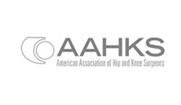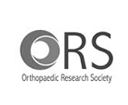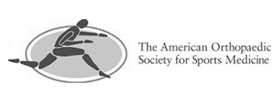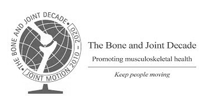Post-Operative FAQ’s
What equipment do I need when I am discharged home from the hospital or rehabilitation center?
As long as the incision is dry and not draining, patients can shower once they are discharged from the hospital. We recommend that patients keep the incision dry until clips are removed or post-operative day #10. This can be accomplished by placing plastic wrap over the incision. It is also recommended that patients do not submerge the incision underwater until healed.
Do I have to donate blood prior to my surgery?
Autologous blood donation is a service available to any joint replacement patient but is not mandatory. Based on the nature of hip and knee replacement surgery, there is always the potential that a blood transfusion will be necessary in the immediate postoperative period. Patients who have a history of cardiac disease or anemia may not be candidates for autologous blood donation.
When can I start driving after my surgery?
As a general rule, patients are instructed not drive until 6 weeks after their surgery. This is not applicable to every patient, however, and some may drive sooner. Driving by itself will not adversely affect your hip or knee replacement. It is important that prior to driving, you have full use of your operative extremity and are not taking any pain medications which may impair your ability.
Do I have to take iron supplements even if I don’t donate blood?
Even if you are not donating blood this is a good idea. Iron supplementation helps your body build red blood cells and increases your blood volume prior to surgery. This lessens your chance of requiring a blood transfusion during your hospitalization after surgery.
After discharge from the hospital, do I go home or to a rehab center?
Patient’s disposition after discharge depends on many factors including their functional ability, physical therapy needs, and whether or not they have support at home. The decision for which would benefit the patient more is decided by a multidisciplinary approach utilizing family members, case management, physical therapy and your surgeon.
Can I sleep upstairs once I get home?
Patients will begin working with stairs as part of the routine post-operative physical therapy regimen. A patient’s ability to negotiate stairs can vary from one individual to the next. If negotiating stairs is too difficult for the patient by the time of discharge, arrangements can be made for a temporary home hospital bed which can be placed downstairs.
When are my staples removed?
For those patients that have surgical staples, these will be removed between post-operative day #10 and #12 in most cases. Usually this will take place at home by your home physical therapist or by the nursing staff if you are in a rehabilitation center.
How long do I have to wear compressive stockings?
TED hose (compressive stockings) are an important component of post-operative deep vein thrombosis prophylaxis. It is recommended that you wear the stockings until 6 weeks post op. It is okay to remove the stockings at night.
Do I have to sleep with a wedge between my legs after hip replacement surgery?
Whether or not a wedge or pillow is necessary at night while in bed depends upon the surgical approach for your hip replacement. Most anterior hip replacement patients do not require a wedge, whereas this device is commonly used in the majority of posterior approach hip replacement patients.
Do I have to attend the joint replacement class at the hospital?
It is highly recommended that you make every effort to attend one of the joint replacement classes at the hospital prior to your surgery. These classes can alleviate much of the anxiety that is normal for pre-op patients and are also very educational.
Who do I call after hours if I have pain?
There will always be a physician on-call after hours to address any questions or concerns you have regarding your post-operative course. They can be reached through the main number at Orthopaedic Specialty Institute (714) 634-4567.
How soon after surgery do I start physical therapy?
You physical therapy will begin either the day you have surgery in the afternoon are the next morning depending on how late you are transferred to the floor. The therapist will always work within your ability and you will not be forced to participate in activities that are beyond your abilities.
Will I be in a private room?
The majority of the rooms at the hospital are private but this cannot be guaranteed.
What equipment do I need when I am discharged home from the hospital or rehabilitation center?
All durable medical equipment, including the 3 in 1 commode chair, will be arranged through case management at the hospital during your post-operative stay. In most cases this can be delivered to your home prior to discharge.


 Menu
Menu










